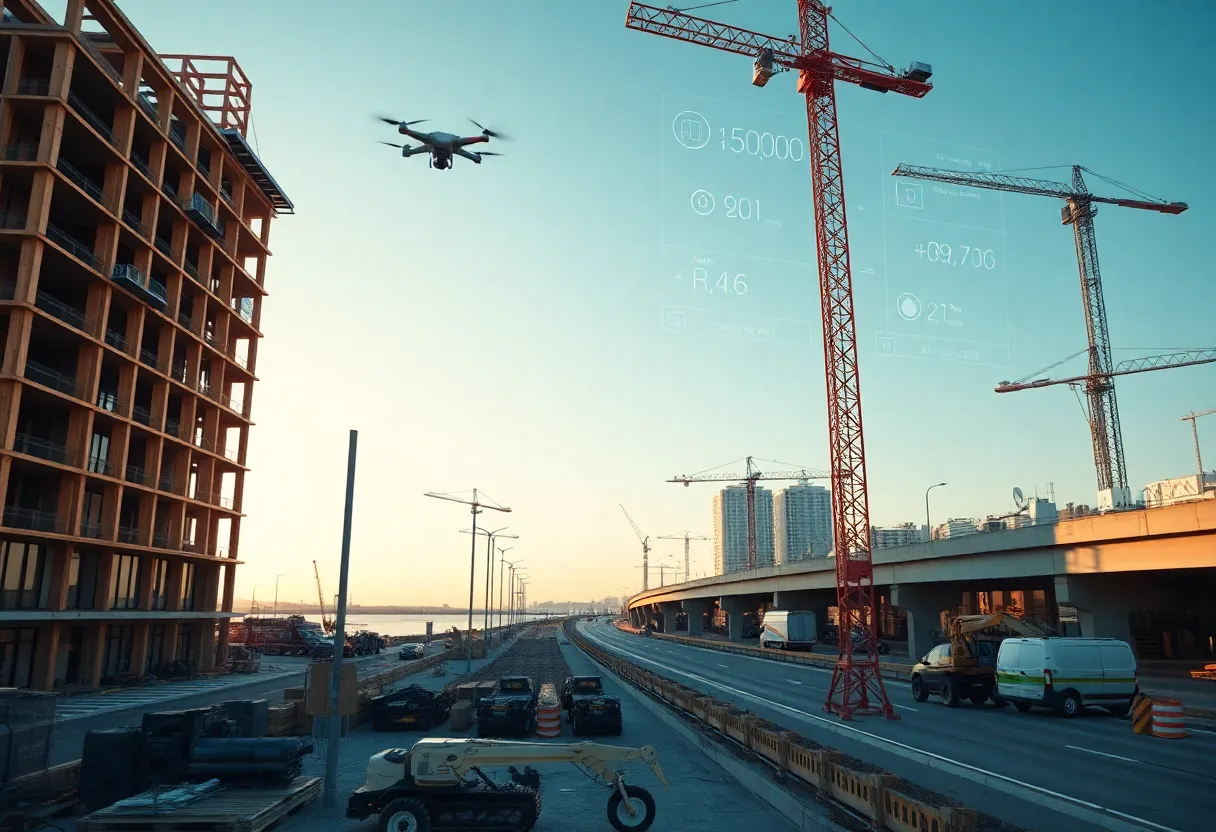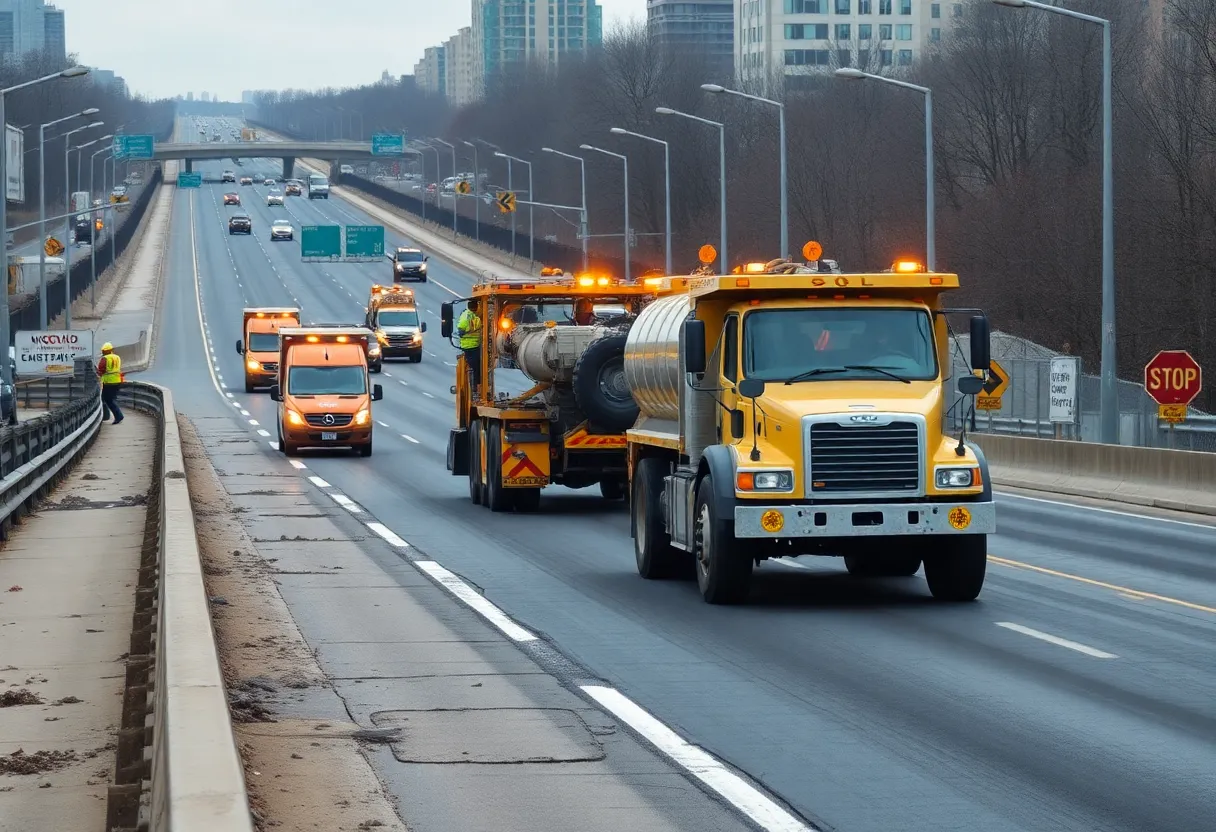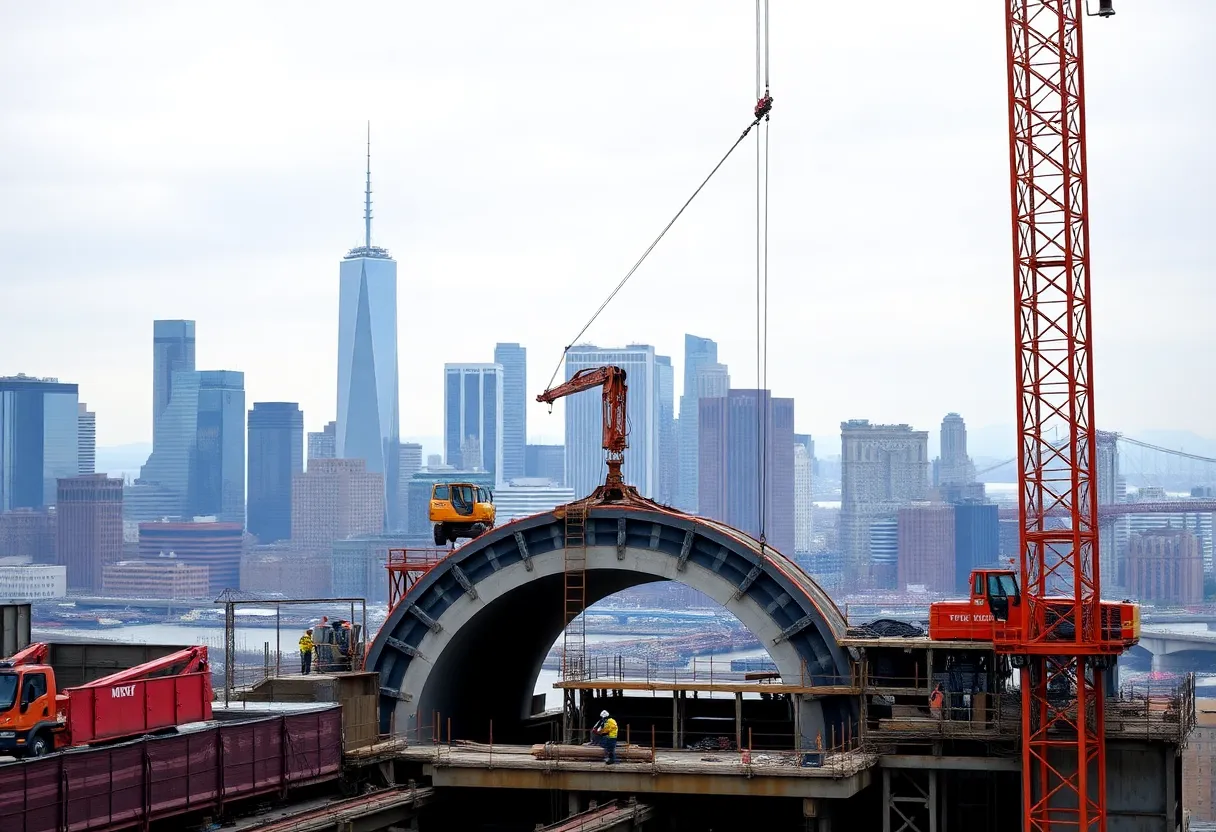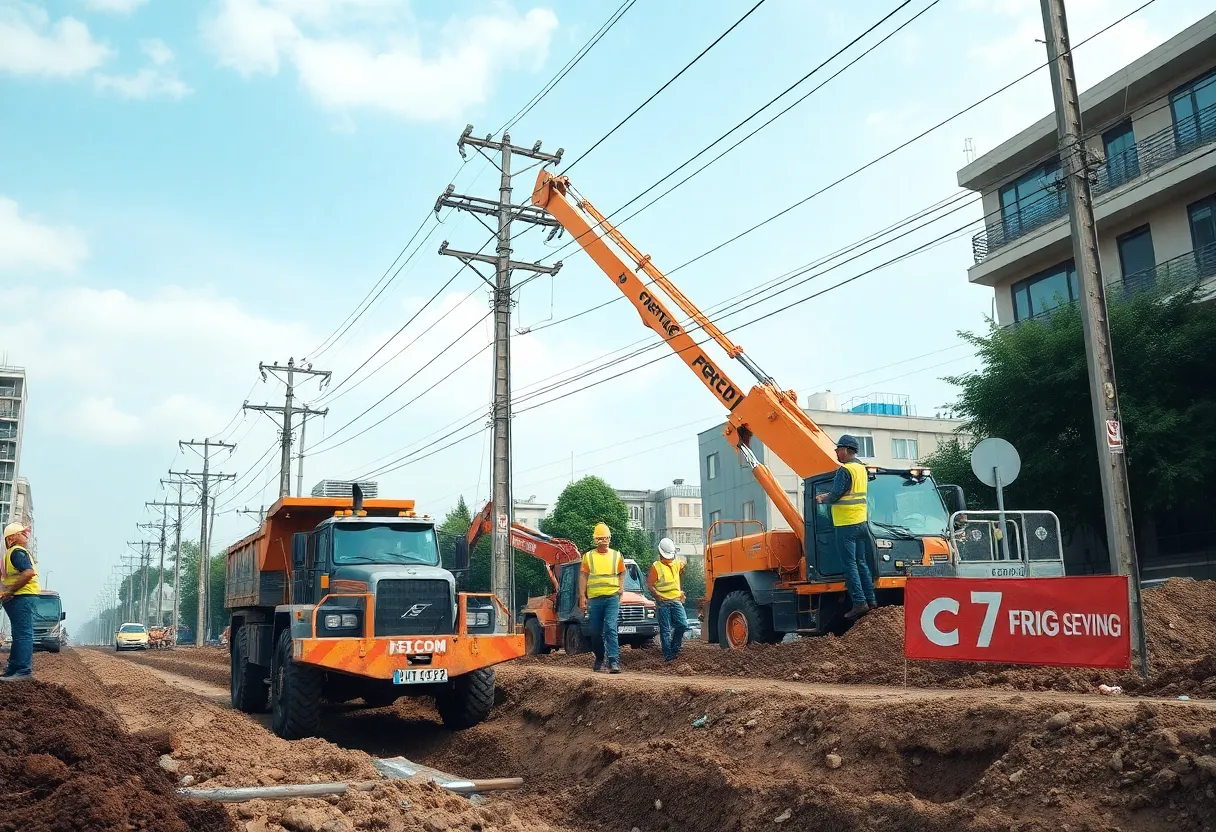Waterfront commercial project, August 21, 2025
News Summary
The construction and engineering sector is increasingly pairing enterprise resource planning (ERP) platforms with industrial AI to improve cost control, field productivity and safety. Firms are adopting centralized data backbones to enable reliable AI predictions while startups and research groups invest in mass‑timber offices, field automation agents and AI‑augmented security cameras. Use cases include automated takeoffs, drone progress measurement, predictive maintenance, and remote guarding on long linear projects. Despite momentum, many contractors remain early in digital transformation and must standardize data, integrate systems and pilot tools carefully to realize consistent benefits.
Industry roundup: Construction presses ERP and industrial AI as firms and startups pilot new tech and mass‑timber spaces
Quick take
Construction and engineering organizations are moving toward larger digital platforms and industrial AI even as they manage tight margins and uncertain economics. Major developments this month include a push to pair enterprise resource planning platforms with AI for project control, a research institute opening a 50,000‑square‑foot mass‑timber headquarters in Seattle, a startup raising an $8 million seed round to automate field workflows, and an AI camera security system going live on a major freeway widening project.
Top facts first
The sector faces persistent economic uncertainty but rising demand for infrastructure, housing and municipal projects. Global construction output was roughly $13 trillion in 2023, and one consulting estimate suggested the market could grow to about $22 trillion. Many firms operate on narrow project margins — sometimes as little as 1% to 2% — driving the need for tighter cost control, better estimating, and faster, more predictable delivery.
Industry research shows a strong appetite for AI and digital platforms. Nearly eight in ten companies expect AI to produce measurable benefits within one to three years, and about 63% are planning to implement new enterprise resource planning platforms by the end of the year. One forecast expects more than half of firms will move to infuse intelligence into operations by 2025 and beyond.
Why ERP plus AI is gaining traction
Project profitability hinges on accurate estimating and tight control of labor, equipment rentals, materials, subcontract packages and overhead. That means monitoring both actual and committed costs, tracking progress, and managing change. Many firms still rely on fragmented systems and spreadsheets, which limits data accuracy and decision making.
Experts argue a reliable digital foundation — a comprehensive ERP platform — is a prerequisite for industrial AI to work. With centralized, standardized data, AI tools can analyze large data sets from schedules, sensors, cameras and field reports to forecast costs, spot site risks, predict asset performance, and automate routine tasks. Without that backbone, AI models risk being built on poor or inconsistent data.
What technologies are being tested
- Automated and autonomous equipment and robotics for repetitive tasks.
- Smart design and BIM tools for better modeling and clash detection.
- Virtual reality for training and site visualization.
- Sensors and IoT for asset performance management and predictive maintenance.
- Drones and imaging for progress measurement and site surveys.
- Smart cameras and wearables aimed at safety and security improvements.
New and notable moves
Research institute opens mass‑timber headquarters
A nonprofit AI research institute has relocated into a 50,000‑square‑foot workspace in a new five‑story mass‑timber commercial building on the north shore of a major lake in Seattle. The space is set up as a central hub for about 225 staff and includes collaborative work areas, meeting rooms, a podcast and video studio, outdoor patios, and a robotics lab with a simulated home environment for testing robots in kitchens and living spaces. The project was designed and built by local architecture and construction teams, and the mass‑timber structure is visible throughout the interior and common areas, offering a lower‑carbon structural alternative to steel or concrete.
Startup raises $8M seed to automate field work
A construction‑focused AI company launched publicly with an $8 million seed round to deploy AI agents that automate field workflows. The startup says its platform pulls jobsite updates from photos, texts, calls and emails to automate tasks like permit review, takeoffs, estimates, jobsite documentation and vendor coordination. The company claims early users are saving time and unlocking more usable jobsite data. Investors included venture capital firms and individual backers with construction tech experience. The founders built their product around workflows used on sites and the goal of moving beyond manual inputs and disconnected tools.
AI cameras used for remote security on large freeway project
A large construction and development firm deployed an AI‑augmented camera system across a multi‑mile freeway widening project to reduce theft and vandalism. The project covers a seven‑mile construction zone and includes adding a second express toll lane, new ramps and bus rapid transit access; it is scheduled to finish in 2028. The remote system uses cameras and AI detection to spot unusual activity, play deterrent recordings, alert staff and, if needed, escalate to human operators who can contact law enforcement. One deployment used 15 cameras on the eastside section of the job.
Industry outlook and next steps
While the potential for AI to improve productivity, standardize processes and make decisions more data‑driven is significant, most organizations remain early in their digital transformations. Success will depend on combining intelligent tools with a solid digital foundation, centralizing data, and standardizing processes so AI outputs can be trusted and acted upon. Electrical contractors and other trades that historically lag in digital adoption face a larger lift, given the prevalence of spreadsheets and disconnected systems.
In short, the construction and engineering sector is testing a mixture of platform investments and targeted AI tools — from enterprise resource planning to field AI agents and smart cameras — as firms look to protect thin margins, meet demand, and reduce rework while addressing environmental and safety concerns.
FAQ
What is industrial AI in construction?
Industrial AI refers to artificial intelligence tools designed to support core construction and asset lifecycle processes. That includes jobsite analytics, predictive maintenance, automated workflows, progress measurement, safety monitoring and other applications that use large volumes of project and asset data.
Why is an ERP platform important before using AI?
An ERP platform centralizes project finance, procurement, payroll, scheduling and other data. Centralized and standardized data makes AI predictions and automation more accurate and reliable. Without a strong digital backbone, AI can produce inconsistent or misleading results.
How can AI improve margins on tight projects?
AI can help by improving estimating accuracy, flagging cost overruns earlier, optimizing resource allocation, reducing rework, and automating repetitive tasks so staff focus on higher‑value decisions — all of which help protect narrow margins.
Are there real examples of AI on sites today?
Yes. Examples include AI cameras for remote security, drones for progress measurement, field agents that automate documentation and estimates, and sensors for predictive maintenance. Pilot projects on large jobsites are already in place in multiple regions.
What should firms do first if they want to adopt AI?
Start by auditing data sources, reduce reliance on spreadsheets, centralize critical project and financial data into an enterprise platform, and run small pilots that solve clear operational problems while measuring outcomes.
Key features at a glance
| Topic | Key facts | Expected impact | Timing |
|---|---|---|---|
| ERP + industrial AI | 63% planning ERP rollouts; AI expected to deliver benefits for most firms within 1–3 years | Better cost control, standardized processes, improved forecasting and automation | Near term pilots now; wider adoption into 2025 and beyond |
| Mass‑timber HQ | 50,000 sq ft in a five‑story mass‑timber building housing ~225 staff | Workspace for robotics testing and cross‑discipline research with lower carbon footprint | Space already occupied |
| Field workflow AI startup | $8M seed to build AI agents for permits, takeoffs, documentation; claims to free 10+ hours/week | Faster decisions, more usable jobsite data, fewer manual tasks | Product expansion and integrations planned with new funding |
| AI camera security | 15 cameras deployed on a seven‑mile freeway widening job; AI detects anomalies and escalates to humans | Reduced theft, lowered guard costs, improved site monitoring | Deployment active; major project completes around 2028 |
Deeper Dive: News & Info About This Topic
Additional Resources
- GeekWire: Photos inside the Allen Institute for AI’s new HQ in Seattle’s first major mass-timber office building
- Wikipedia: Mass timber
- Business Wire: Klutch AI Emerges from Stealth with $8M Seed to Bring Intelligent AI Agents to Construction Teams
- Google Search: Klutch AI
- GeekWire: Seattle startup Klutch raises $8M to bring AI coworkers to construction sites
- Google Scholar: AI agents construction
- MyNorthwest: AI security deployment on freeway widening construction project
- Encyclopedia Britannica: video surveillance
- New York Times: How AI and data centers are changing electricians’ work
- Google News: AI data centers electricians
Author: Construction NY News
The NEW YORK STAFF WRITER represents the experienced team at constructionnynews.com, your go-to source for actionable local news and information in New York and beyond. Specializing in "news you can use," we cover essential topics like product reviews for personal and business needs, local business directories, politics, real estate trends, neighborhood insights, and state news affecting the area—with deep expertise drawn from years of dedicated reporting and strong community input, including local press releases and business updates. We deliver top reporting on high-value events such as the New York Build Expo, infrastructure breakthroughs, and cutting-edge construction technology showcases. Our coverage extends to key organizations like the Associated General Contractors of New York State and the Building Trades Employers' Association, plus leading businesses in construction and real estate that power the local economy such as Turner Construction Company and CMiC Global. As part of the broader network, including constructioncanews.com, constructiontxnews.com, and constructionflnews.com, we provide comprehensive, credible insights into the dynamic construction landscape across multiple states.





